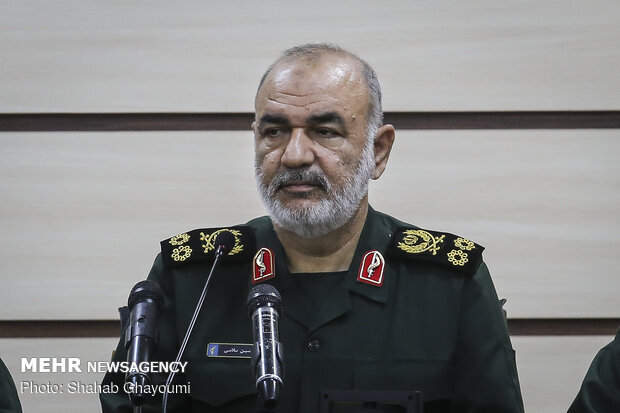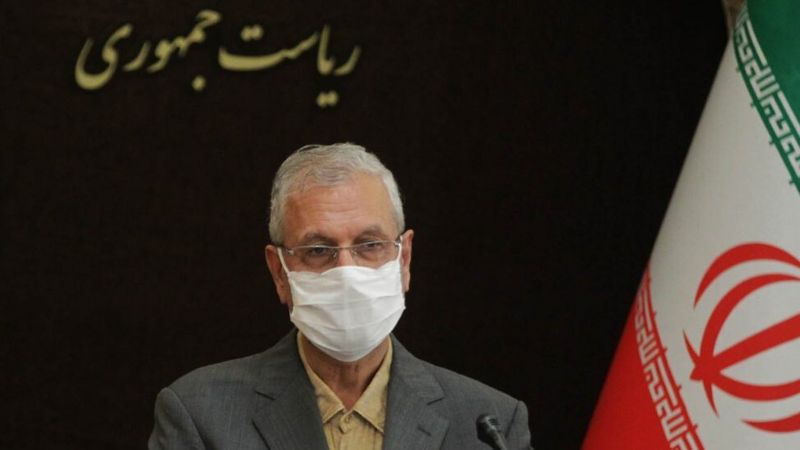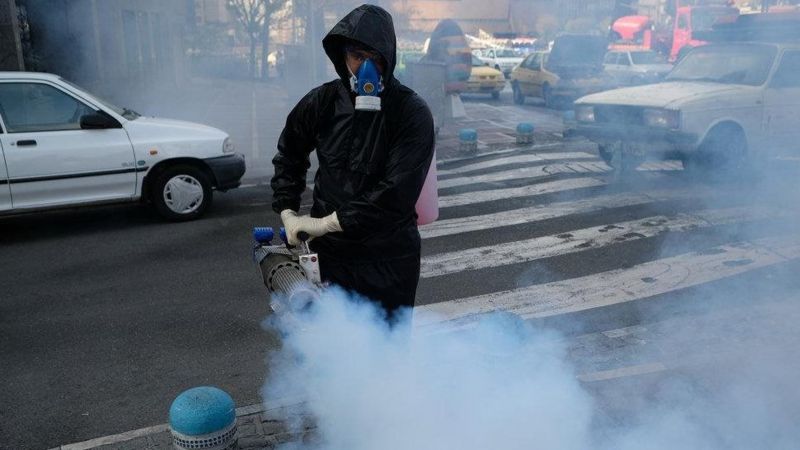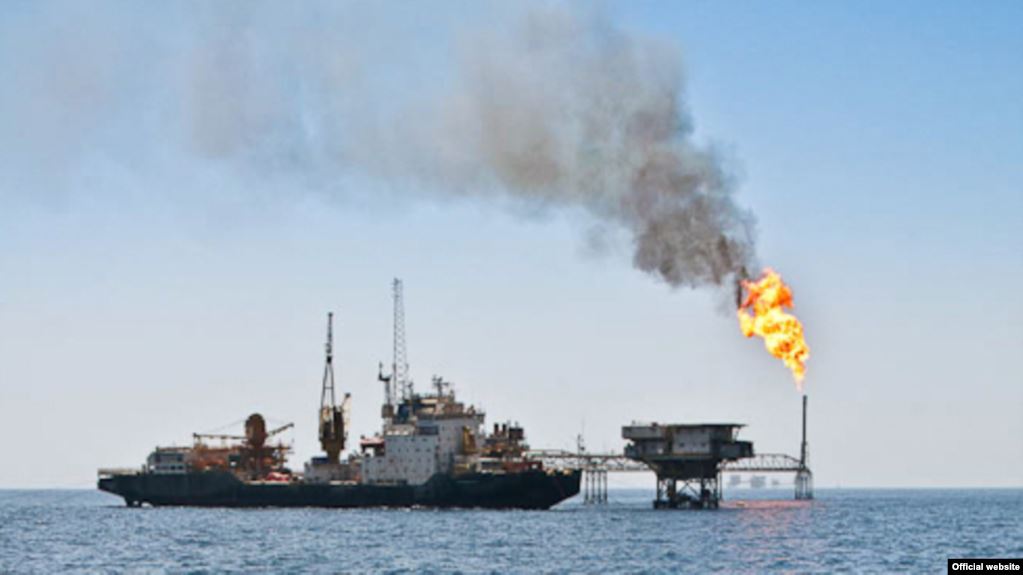
Why Isn’t Tehran on Lockdown?
The editorial of Arman Melli, penned by member of Tehran’s City Council Zahra Nejad-Bahram, urges that the capital of Iran must be on lockdown for at least two weeks, as the number of coronavirus cases has spiked to a critical level in the city.
Tehran is in need of two to three weeks of lockdown. During the past few weeks, the head and members of Tehran’s City Council have repeatedly asked the National Coronavirus Combat and Prevention Headquarters to announce a lockdown on the capital, but haven’t received any clear response yet. It is not very clear why the government is against a lockdown on Tehran, but it seems that it is concerned with the economy and people’s livelihoods.
No one is suggesting that the government should impose a long period of quarantine, but for a short period of time, the city of Tehran must be on lockdown so that the pressure on healthcare workers is temporarily alleviated and necessary preparations are made for the future.
This is what Tehran’s City Council was trying to achieve, but the government has agreed with shutting down businesses in the capital after 6 p.m. This plan is unlikely to work, because it requires the cooperation of a large number of law enforcement forces and businesses.
In these circumstances, people and the government have economic concerns, but we must take into account that Tehran is on the threshold of a crisis which must be immediately managed.
In a letter to the National Coronavirus Combat and Prevention Headquarters, members of Tehran’s City Council and lawmakers demanded that the government should agree with a two-week lockdown for Tehran. But they have not received any reply.
If Tehran is not put on lockdown for two to three weeks, the rate of deaths due to coronavirus will reach 400 per day in this city, and then it will be too late for any measures. Healthcare workers are exhausted, and, unfortunately, one member of each household in Tehran has contracted this disease. A two-week lockdown is absolutely necessary for the capital.
Economic Problems Can Be Solved by Experts, Not the Military
The editorial of Setareh Sobh, written by former lawmaker Ali Mohammad Nemazi, argues that the IRGC and military forces should not be allowed to get involved in economic affairs.
Recently, hardline lawmaker Javad Karimi Ghodoosi wrote on Twitter: “There is no solution for the deteriorating economy and people’s livelihoods but for the IRGC to get involved in it [the economy].” These remarks raise some questions, as they are made by someone who considers himself as a representative of the people, but he still doesn’t know anything about the functions of military and non-military entities.
This ignorance among lawmakers stems from Iran’s flawed electoral process. As a result of “approbatory supervision” by the Guardian Council and the non-competitive nature of elections held in Iran, incompetent individuals are elected to the Parliament and hold that the economy must be entrusted to the military – which is against the Constitution.
The last example of a fair and competitive election goes back to the 6th Parliament, and after that, competent candidates have been disqualified by the Guardian Council and haven’t been able to play any role in the legislative and oversight process, as a result of which people’s turnout in the 11th Parliamentary election was very low.
The question is: where in the world has the military been in charge of the economy with any notable achievements? Does the military have any expertise and experience in economic management, foreign relations, culture, etc.? It must be underscored that economic management involves different and complicated issues which only economic experts can fully understand.
The military has expertise in defending the country and its borders, and should not interfere in any other affairs. It is not clear why some are trying to bring the military into the economic field. No such thing exists in other countries. In developed countries, not just the military, but the president himself cannot get involved in affairs that are not within his jurisdiction.
Although Rouhani’s government has performed poorly in its second term, the military should not be dragged into the economic and political fields. Only through holding fair elections for the government and the Parliament and with the help of experts in these fields can the country’s problems be solved.
Workers; Disease and Unemployment
The editorial of Aftab Yazd deals with how Iranian workers are under intolerable pressure because of coronavirus.
After the outbreak of coronavirus, 70 percent of construction workers lost their jobs. The news is short and simple, but it tells of a human catastrophe that is taking place and will impact a large part of society.
Here coronavirus is both the cause and the catalyst – a silent, ruthless catalyst which has spread disease, poverty and death all over the world. Other workers are not doing much better. Besides, we should not forget about other problems that workers are grappling with: delays in payments, layoff policies, etc.
It is a simple equation: workers lose their jobs, they will not bring any money home, and as a result, households will not be able to continue to exist. The organization which is in charge of this issue – i.e. the Social Security Organization – does not accept any responsibility in this regard, while the issue at stake is a matter of life and death for households due to poverty and disease.
It is legally incumbent upon this organization to deal with the insurance of unemployed workers and insuring those workers who do not have any insurance with the minimum of formalities, as these households’ tables are empty due to bureaucracy.
The Social Security Organization belongs to all people and covers more than 40 million people. Its wealth has been amassed over years through the monthly payments of millions of people. But more than 3 million workers do not have insurance coverage.
The Social Security Organization must deal with this issue immediately. We must remember that workers are entitled to fair wages, insurance, healthcare, and job security, as these workers are the backbone of society. Otherwise, workers who are facing the pressure of the coronavirus disease and unemployment must await for unfortunate calamities.
The Soaring Currency Rate Is a Symptom, Not the Cause
The editorial of Donya-e Eghtesad explains why the recent increase in the foreign currency rate in Iran is not the main cause of the country’s economic problems; rather, it is the result of other economic irregularities.
In recent months, many economists and politicians have talked and written about the negative impacts of the increase in the foreign currency rate, saying that it has resulted in increasing the inflation rate and has depreciated the national currency. Other negative impacts of this increase are said to be on production – as with the increase in the foreign currency rate, industrial production, which depends on importing raw material and manufacturing equipment, will decline.
But the main question is: why is the foreign currency rate increasing? Many economic variables influence the foreign currency rate. In fact, any change in the foreign currency rate is because of other economic variables. It is not right to think that the increase in the foreign currency rate is the root cause of all problems. The most important variables affecting the foreign currency rate are as follows:
1-The gap between local and foreign inflation rates will create an increase in the foreign currency rate in the long run.
2-The other variable that directly and indirectly impacts the foreign currency rate is liquidity growth. The direct impact is that with an increase in liquidity growth, people will be in possession of more national currency and will rush to the forex market. The indirect impact is that the forex rate goes up as a result of liquidity growth.
3-Acceleration in the circulation of money is another factor which affects the forex rate.
4-The other factor is negative growth in the non-oil economy. The more the non-oil economic growth is negative, the weaker the national currency will be, which will result in an increase in the forex rate.
Therefore, it can be argued that although there was no oil revenue during the 2000s and the government did not insist on stabilizing the forex rate, the above-mentioned factors determined the forex rate. But the increase in the forex rate in recent years has its roots in the increase in the inflation rate, liquidity growth, the acceleration of money circulation, and the decrease in production capacity.

IRGC to Play Bigger Role in the Economy and in Overseeing Prices

IRGC Chief Commander Hossein Salami announced that a new headquarters has been set up by his institution to control the prices of goods in the country, adding that the Basij would also play a role in the supervision, inspection and direct supply of goods.
This announcement came after repeated criticism of increasing prices by Iranian Supreme Leader Ali Khamenei. During a speech in July, Khamenei slammed the skyrocketing price of foreign currency in Iran, calling it unacceptable: “According to the reports I have received, this issue has more security-political reasons than economic ones.” Meanwhile, Parliament member Javad Karimi Ghodoosi also recently suggested that the only way to solve people’s financial problems is to put the IRGC in complete charge of all affairs.
The “Rabi 17th Headquarters” – which is named after the birth date of Prophet Muhammad on the occasion of which Khamenei made a speech – is supposed to implement a number of “immediate” and “effective” decisions for curbing prices which have risen without any good reason, Salami pointed out. He did not provide any details about these decisions. Members of the newly-established headquarters include the minister of agricultural jihad, the minister of industry, mine and trade, the minister of the justice department as well as the prosecutor general and a number of security institutions.
So far, the Tazirat Organization – a subsidiary of Iran’s Justice Department – has been responsible for investigating economic, trade union and health violations. In addition to this organization, several institutions and organizations are engaged in regulating the country’s economy, including the Supreme Council of Economic Coordination, the government’s Economic Coordination Headquarters and the headquarters for regulating the bazaar.
Following several nationwide protests in Iran in the past three years which were mostly triggered by economic hurdles, Ali Khamenei is seriously concerned that rising prices might turn into the Achilles heel of his establishment.
Now the question is: how can the IRGC and Basij control prices while the government is incapable of doing so?
The IRGC defines its duty as maintaining the 1979 revolution and played a major role in suppressing the popular protests in November 2019 and December 2017. This military institution is now entering the scene once again to prevent potential unrest in Iran. In other words, ministries and other organizations will be adopting policies dictated by the IRGC, and not the government, from now on.
Rouhani Asks Biden to Change US Foreign Policy; Rabiei Asks US President-elect to Compensate for Sanctions

Iranian officials have started making requests to US President-elect Joe Biden regarding his country’s policies towards Iran.
President Hassan Rouhani asked Biden to change the foreign policy of his country: “Now it is for the newly elected officials and leaders in the United States to understand their nation’s message very well and exercise the will to change their foreign policy and relations with other countries and nations.”
In a speech during the online summit of the Shanghai Cooperation Organization, Rouhani noted that the United States “needs to return to the rule of law and internationally recognized regulations and obligations as well as respecting other nations’ rights and compensating for the losses incurred in order to restore its global credibility.”
Meanwhile, Iran’s government spokesman Ali Rabiei stated that his country has “completely obvious expectations” from Biden’s administration and considers the “leaving of Donald Trump an opportunity for creating a more suitable space for pursuing Iran’s fundamental policies.”
Rabiei pointed out that Iran expects the next US administration to return to the JCPOA “unconditionally” and “compensate for the damages inflicted on the Iranian nation.”
Rabiei had previously said that America had caused “billions of dollars” in damages by imposing sanctions on Iran.
“We hope that the next US administration understands very well that the policy of pressure on Iran has failed and the severest sanctions ever imposed on a country in history not only failed to force us to surrender but made our nation even stronger in standing up for the principles of independence, dignity and national honor,” he added.
Rabiei ruled out the possibility of Biden not returning to the JCPOA. He noted: three years ago, it was said that Trump would not leave the JCPOA as this agreement facilitates US interests and now they say Biden will not return to it because there is no benefit in doing so.
US President-elect Joe Biden, however, has not yet clarified his decision on the JCPOA after his victory.
65 Heads of Medical Science Universities Call for Two Weeks of Lockdown in Iran

While the number of deaths due to coronavirus in Iran is rising significantly, Iranian officials still disagree with each other over how to enforce restrictions. In a recent development, the head of the infectious disease department in Masih Daneshvari Hospital says that 65 heads of medical universities in Iran, in an open letter to the health minister, have called for a two-week lockdown across the country.
Also, the head of the Health Commission in the Parliament, in a letter to Iranian President Hassan Rouhani, has demanded a full lockdown on Tehran and other big cities in Iran for 15 to 30 days. Hosseinali Shahriari says in the letter: “The level of outbreak of coronavirus in the country requires certain measures, and if we don’t find any solutions for it today, it will be too late tomorrow.”
Repeated requests for imposing a quarantine in Tehran and other big cities in Iran have been raised, while it was recently announced that Tehran will be placed under curfew after 6 pm. Also, there are restrictions on businesses in 25 crowded cities in Iran.
The call for a total lockdown is made when according to official reports the rate of mortality is above 400 per day and almost 40,000 people have lost their lives so far. Independent studies show that this number is two or three times more. Meanwhile, the spokesperson for the Health Ministry has stated that healthcare workers are exhausted because of an increase in hospitalizations and deaths due to coronavirus.
Currently, most Iranian provinces are red zones for coronavirus. Iran has had the highest rate of infections and deaths due to coronavirus.
The outbreak of coronavirus and disagreements over quarantining the capital have amplified, while in recent months the health minister and a number of experts have had differences with the Iranian government over opening businesses, holding religious ceremonies, and opening schools.
Only 10 Percent of Oil Revenues Have Been Realized in 2020

The deputy head of the Economic Commission in the Parliament says that only 10 percent of the oil revenues forecasted in the budget bill have been realized. Seyyed Ehsan Khandoozi stated that roughly half of the budget revenues has come from issuing bonds and selling companies by the government.
In its budget bill, the Iranian government had projected the daily export of 1 million bpd at $50 a barrel, which would have been equal to $18.25 billion.
Statistics by tanker tracking companies show that Iran’s oil exports have been roughly 300,000 bpd, while Iran’s oil has been $35 per barrel. Of course, a part of Iran’s oil export revenues are used to settle the country’s debts to the Chinese companies Sinopec and CNPC for their $5 billion investment in the Azadegan and Yadavarn fields and with no revenues for Iran.
Also, a part of Iran’s oil exports goes to Syria, and it is not clear if Syria pays any money to Iran for the oil it receives.
Earlier, the Parliament’s Research Center had reported that the government’s revenues from exporting oil was only $700 million in the first five months of the Iranian year (starting in March), which is far from the budget’s goal. The Iranian government’s goal was to gain 57 trillion tomans from oil and oil products.
A report by Fars news agency pointed to the realization of 10 percent oil revenues, adding that the entire oil revenues for the first half of the year were roughly 5.7 trillion tomans.
A recent report by the IMF says that Iran’s net debt in the current year will reach $260 billion, which is twice more than in 2018. The government’s net debt will represent 44 percent of the country’s entire economy.
